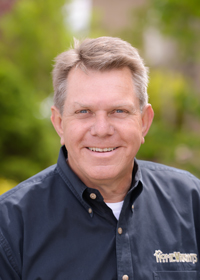The Importance of Soil Testing and Soil Analysis in Denver

Bob Hinz – Denver Custom Home Builder
For those of you who don’t know, Colorado has some pretty unique engineering challenges when it comes to residential home construction. Thank goodness we don’t have 40 inches of rain per year, because if we did, we’d have the “perfect storm” of conditions to make building nearly impossible.
I recently worked with an excavator, homeowner, foundation contractor, soils engineer, and structural engineer, trying to figure out the smartest and most economical way to build a foundation on some “icky” soils in the Denver area. “Icky” is not a word that I’ve used since I was a kid. But it’s the only way to describe this. The soils engineer actually used “Icky” the other day, because he couldn’t think of any other word descriptive enough to capture the expansive nature of the stuff. He also used “Scary”.
In Colorado, we can have some pretty extreme wind conditions, so we have to design for that. We actually have to design for seismic activity. Of course we have to design for snow loads. And, we have to design houses and especially foundations for “icky” soils.
The particular custom home building Denver project has been the subject of so much work in the last week and has some of the most expansive soils I’ve seen. PLEASE NOTE- I said, “expansive” not expensive! This stuff will expand about 7 or 8 percent when water is added. I’ve seen samples that tested out at 3 percent, or four percent, but never this much. Of course, the soils engineer poo-poo’ed my observation that 7 percent was pretty high. He’s seen it as bad as 12 percent.
Here’s what 7 percent really means. That soil is dangerous! And building on expansive soils can end up being a very expensive soil as well!
Imagine we built a house with conventional foundation components, and backfilled all around it with some of this icky soil. Now in a perfect world, if we cautioned the homeowner about that soil and said “Do NOT get this stuff wet”, he or she would keep all of the gutters and downspouts working perfectly, and would NEVER remove the downspout extenders. He or she would never plant trees or shrubs within 5 feet of the house if they required heavy watering. And he or she would keep a careful eye on the grading to make sure that the dirt around the house never settled to allow puddles around the foundation. That’s a perfect world.
In a real world, two years, or five or ten years from now, we’ll have puddles around that house. And the soils will expand. If they expand 7 percent, that foundation does not stand a chance. If the soils get wet UNDER the foundation, the house is going for a roller coaster ride. That’s why this house gets a very special foundation.
The foundation design for these icky soils will be the mother of all foundations. Our caissons will go down 26 feet below the foundation. There’s enough steel in the caissons alone to build a small ship. But…it won’t move! And it won’t crack or fail. This house will be built to withstand the worst possible assault from soils. Basically, we win because of good engineering.
The point of all this is simple. You could read a million books on homebuilding, and you might guess right when it comes to a difficult situation like this one. But when it comes to making the right judgment on this foundation, you need the experience of a good soils engineer, the experience of a good structural engineer, and, oh yeah, you need someone on your side with enough experience to put all the pieces together.
That’s where the knowledge we’ve gained as experienced Denver custom homebuilders might prove to be quite useful to anyone thinking of building their own custom home.
Call/Contact us and we’ll talk some dirt.
Call with any questions: 303-756-8870